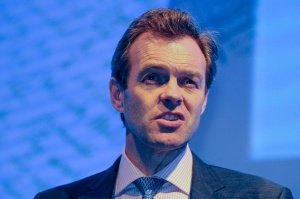What Does It Take To Do a Hotel Deal in Africa?

At the Africa Hotel Investment Forum (AHIF) this September in Nairobi, one of the hot topics on the agenda will be ‘What it takes to do a deal in Africa’.
Why is this such an important question? “Because Africa is a continent full of opportunity and impressive economic growth” says Jonathan Worsley, Chairman of Bench Events, the company organising AHIF. “However, it is not the easiest place in the world to do business but if it could become easier, the cheque books of international investors would open”.
With 7 of the world’s 10 fastest growing economies being in Africa and economic growth averaging around 6% per annum, more than double the rate of many major Western economies and faster than the average for Asia, you might expect entrepreneurs to be rushing in. One of the reasons they’re only just starting to dip their toes in the water is the relative difficulty of doing business there.
Jean Marc Grosfort, Chief Development Officer, Middle East & Africa for the hotel chain Marriott International says that the greatest obstacles to his company include: poor infrastructure, limited knowledge and appreciation of international standards, reluctance of local partners to put up sufficient cash, corruption and a construction industry that can suffer from mediocre quality and delays. He describes a hotel project where a hotel owner borrowed money for redevelopment. The lender insisted on its preferred site management company and the site management company allegedly misused the funds. As a consequence, the project was delayed and the owner was left with no option but to contemplate legal action against the lender. Stories like this do not help entrepreneurs to secure funding.
A much talked-about inhibitor to in inward investment in Africa is political risk. Some international investors fear that if they put money into a project with one party in government, a subsequent change in administration could lead to the project being “nationalised”. Experienced deal makers point to various strategies to mitigate such risks. One is to find a local partner who is very well connected; another is to make the project subject to the legal jurisdiction of another country and a third is to give the government an interest in the project’s success by persuading it to take a stake with a specially constituted investment fund.
ADVERTISEMENT
Sometimes, having a strong brand name is sufficient to make things happen. Jean-Marc Grosfort reports that in one African country, the government was so happy to see a Marriott coming that strong words were given to the national bank by the minister of finance to ensure that the appropriate senior loan was available - the deal was signed in less than 4 months.
Gabriel Matar, Director, Middle East & Africa, Jones Lang LaSalle Hotels, points to the need for a destination to have a master plan for tourism development. “A master plan means that the country can give credibility to investors and that makes all the difference between funding or not”, he says: “Investors won’t spend money going against the type. It needs the government to be behind tourism development; that’s too big a job for the private sector. Many African governments don’t understand this and they think the private sector will do it all. In that scenario, the only chance for a new project to win funding is if there is a huge return for the private investor but such projects tend to carry excessive risk and ultimately fail.”
Matar holds up Mauritius as a positive example. “There, tourism is a priority and they have a master plan that is respected and implemented by successive governments. Developments that fit the master plan will often receive government support in the form of help with finance, for example with investment by a national fund, by introductions to international sources of capital or by giving access to credit lines agreed by international lenders such as the IMF, the EBRD or the Africa Development Bank.”
Philippe Doizelet, Managing Partner, Horwath HTL confirms a master plan for tourism development is the first step, particularly towards partnership between major hotel brands and local investment funds or institutional investors that are emerging in selected African countries. However, he points out that the time to structure a deal takes longer in Africa than anywhere else in the world and adds, “The levels of financial sophistication are variable – well developed in South Africa and Morocco but emerging elsewhere such as Senegal and Benin”.
Phillipe Baretaud, Senior Vice President & Head of Development Europe Middle East Africa, Accor, which recently signed a management contract under the Sofitel flag for the hotel Ivoire in Abidjan, stresses the importance of an imaginative approach to financing. He says: “The key to hotel development in this market is operators and hotel owners working together to structure deals in innovative ways to secure financing.”
Jonathan Worsley concludes: “Evidently, the expertise exists. Delegates at AHIF will receive detailed answers to the question ‘What does it take to do a deal in Africa’ - as we will hear from a panel of successful players in the African hotel market. We will learn about their activities and interrogate them on the strategies that unlock finance and promote long-term profitability of hospitality projects.”
The Africa Hotel Investment Forum (AHIF) will take place in Nairobi on September 25-26. It is the premier hotel investment conference on that continent and it will be attended by leaders of the hospitality industry, by investors, by consultants and by the media from Africa and around the world.

